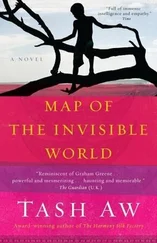Four months ago they’d flown down for the funeral and seen her dead body — Holly’s first. She’d always heard that they looked fake and waxy, but she found it oddly not-disturbing. Maybe it was good that her first one was somebody she truly hadn’t known. Like practicing up for her mother. Who’s only sixty-three, but nevertheless. Holly’s father is sixty-six, living in Vancouver with his second family. (The younger boy’s now twelve.) She has no plans to attend that funeral, however many years away it might be.
When they went through his mother’s stuff, Seth told his father the same thing he’s saying now, about taking the wheelchair to the Salvation Army. Instead, he’d shipped it up to New York, then made sure it was in the van for the move to South Norwalk. He wanted it as a guilty reminder of his father’s selfless devotion, she assumed, which he was secretly afraid he himself wouldn’t rise to, if and when. But now it’s shaded into punk grotesque: Seth uses it as a footstool, a TV tray, and at the head of the table at dinners when they’re short a chair. Holly once said it made them seem like awful people. Seth said, “To whom?”
Seth’s official reason for still smoking weed is that he doesn’t want to, quote, go native, meaning end up one more suit on the train. (He in fact does wear a suit to work.) He wants them to, quote, live nicely, in a big house where family can come visit (kids, of course, in the back of his mind), but at the same time he doesn’t want to get less crazy. So he’ll smoke up before he goes for a run, and he’s found a dentist in Danbury who still gives gas; last week he had a dope-and-classic-movie marathon: The Godfather; Godfather II and Psycho. While the magazine he edits and publishes is basically a trade journal, it’s designed by a guy who used to be at Spin, and he commissions pieces from name writers. He’s told T. Coraghessan Boyle’s agent that he’d take fifteen hundred words on anything in any way related to marketing just to have Boyle’s picture on the contributors’ page — which Holly suspects is why he’s never heard back. Before they left the city, Seth bought a secondhand Ford Explorer and put in furry speakers so big they take up most of the wayback; now he’s got his eye on this particular sports car that Mazda makes, which looks completely European but costs like half. Holly, meanwhile, is trying to get less crazy. When he asked what kind of car she wanted — up here you really need two — she chose the top-rated Saturn. A dark green Saturn.
With all this company, she can’t be crazy. Her sister, his father tomorrow, then, after he goes back to Florida, her mother comes in for Christmas. (Seth and Holly have agreed it would be just too weird to throw the two of them together.) And in between they’ve got his old college roommate coming up for a weekend with wife and kids. Seth even said something about maybe asking Holly’s dad and stepmom sometime, but Holly cut that one off. He wants everybody, it seems, to admire their new home. It’s a white-clapboard, black-shuttered house—“Classic Connecticut,” the Coldwell Banker brochure called it, “with today’s amenities.” Built in 1849, four upstairs bedrooms, new half-bath off the master bedroom, new kitchen with slate countertops and a Jenn-Air range with six burners. And since it was in South Norwalk rather than Westport, Seth thought they could actually swing it, even though Holly’s income — she freelanced restoring rare books and documents — could be unpredictable. There’s a big old maple tree he thinks they could save if somebody cut out the dead limbs and fertilized, and a garden out back. Their first day there, after Seth drove to the train, Holly put on work gloves and raked brown vines into a pile beneath the eight-over-eight windows. In each window, she could picture a black-suited old Yankee merchant or minister, the long-dead owners of this fine, severe house, looking down at her. She worked for half an hour, then took a shower and drove in to Manhattan. To fuck her lover. Harsh as that sounds.
All during the house-hunting, the mortgage application, the closing, even the move, she’d managed to spend an afternoon or two a week with Mitchell, then go home to her husband. And for another few weeks, until she decided the whole thing was too crazy, she’d drive into the city after morning rush hour, then back up to Connecticut before the afternoon rush began, to wait for her husband in their strange new house. Holly was prettier than her lover was handsome — Mitchell was getting bald and potsy, though in a cute way — so he’d had to put up with her having a husband and everything that involved: being kept on short notice, not being able to phone, having to wear a condom in addition to her putting in the diaphragm. When they played rough, she made him be careful about scratches; but she was allowed to mark him because he had nobody to hide stuff from. (That she knew about.) Finally, he’d had to put up with being told it was too crazy. What almost made them even was Holly’s need to feel like shit.
For a lover, she’d chosen the curator who’d been giving her most of her restoration work for the past couple of years. So since the beginning of October, she’s made less than a thousand dollars. Something else Seth doesn’t know.
These last few days she’s been trying to read Madame Bovary, a book she somehow missed in college. To drive home the where-adultery-ultimately-gets-you idea, though it’s also part of her self-improvement scheme, along with learning about opera and getting serious about cooking. The beginning seems to be about the husband as a schoolboy, so it looks like it could take forever to get to the marriage and then the affair, but she means to stick with it. And now that she’s going to stop smoking weed, that should help her concentration. She’s figured one thing out: the reason she goes deeper into her this-is-not-me space with her husband than she did with her lover is that she didn’t lie to her lover. Or didn’t lie as much to her lover. But the lover, not the husband, had to wear the condom, so didn’t that mean it was the lover who was more distant? And sure enough, she’s given up the lover and stayed with the husband. So at least that part hangs together.
With her morning headache, Holly does a lousy job of fixing breakfast for everybody. She slices the grapefruits in half, but can’t face getting in there with the knife and cutting the sections free. Nor does she use any of the six burners to cook them eggs, bacon, pancakes or even this great Irish oatmeal she bought. Her one big, bountiful effort is to fill the peacock-feather pitcher with milk and set out bowls and boxes of cereal: they’ve got their choice of Spoon Size Shredded Wheat or raspberry granola. When she goes to get coffee cups, Seth has come back from the store with the Sunday Times and he’s taking down juice glasses. She huffs out a big breath at him: he’s in her way. That was a shitty position he put her in last night.
She pours their coffee, then tries squeezing the ball of her thumb with the other thumb and forefinger, which is supposed to get rid of a headache. Without asking if anyone minds, she’s sneaked the Jane Eaglen CD into the kitchen boom box; it’s the first one, the Bellini-Wagner recital, which she likes better than the second one, the Mozart-Strauss, because it’s more extreme, though maybe not the thing for a headache. Holly’s still trying to come up with a formulation for Jane Eaglen. So far she’s figured out that Leontyne Price is steely and powerful, that Victoria de los Angeles is sweet-toned and smooth, that Montserrat Caballé is exquisitely controlled and that Luisa Tetrazzini, with all that birdy-sounding stuff, is virtually unlistenable. In some other life she’d be able to set forth these opinions in conversation. Though so far Seth is putting up with her opera phase on principle: the principle that any and all music must be put up with, just as she put up with his dancehall-reggae phase. What is it with men and music? Mitchell’s opera collection is so huge she’d wondered at first if he was straight. He was the one who’d put her onto Montserrat Caballé, calling her attention to Caballé’s pianissimo, which suggested that he liked his women to be exquisitely controlled. And Holly became that for him, within the context of being a total outlaw. The word adulteress makes her think of wild tresses. A dress, ripped from bare shoulders. It also makes her think of the word actress.
Читать дальше












